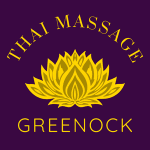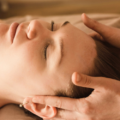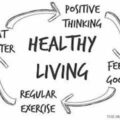Thai Massage tutorials and tips.
This article was provided by Mark’s Daily Apple, which is the go-to destination to learn how to lead a healthy Primal life in this hectic modern world. I find their posts usually offer some interesting opinions and useful trips and advice
 Disclaimer: I have not gone through menopause. I am, however, turning 40 this year. Statistically speaking, this is the decade in which I’m likely to enter perimenopause, so I have a vested interest in understanding what might be in store for me.
Disclaimer: I have not gone through menopause. I am, however, turning 40 this year. Statistically speaking, this is the decade in which I’m likely to enter perimenopause, so I have a vested interest in understanding what might be in store for me.
I’m all too familiar with the stereotype of the belligerent, out-of-control menopausal lady plagued by hot flashes and mood swings, bewildering her poor, beleaguered partner. [Note that for convenience I am going to use “menopause” to include the perimenopausal period as well.] Frankly, this narrative doesn’t suit me at all. I know very well that hot flashes and mood swings can be a part of menopause, but obviously there’s a lot more to it than that.
Of course, I want realistic view of what lies ahead so I might prepare mentally, emotionally, and physically. However, I also want the nuances. Plus, as an optimist I want to know the good, not just the bad and the ugly. To my mind, any major life transition is a chance at a reawakening of sorts, even if the road through it is rocky. My natural tendency is to find the silver lining and reframe situations as growth opportunities.
Menopause is much more than a collection of symptoms that need to be combatted. However, much of what’s written about menopause, from the scientific literature to the blogosphere, focuses on coping with and dealing with menopause. After a while, one wonders if the scientific and medical communities aren’t overeager to problematize and medicalize menopause by putting all the focus on the symptoms and, naturally, the treatments (they can make money off of). You have to dig deeper to find discussions about the meaning of menopause through the eyes of women who are living it.
Nevertheless, plenty of women and scientists (and women who are scientists!) are exploring how menopause fits into the flow of a woman’s life. I came away from my research seeing that menopause is, in fact, not terrible for many women. There’s tremendous variation in individual women’s experiences of menopause, not only in terms of the actual symptoms but also in the way she appraises them. Menopause is far more nuanced and idiosyncratic than sitcom stereotypes or medicalized portrayals would have us believe. It can be a time of tremendous growth and transformation, and a lot of women embrace that opportunity.
Moreover, although hormone therapy is by far the most loudly promoted remedy, it’s not the only game in town by far. There are actually a wide array of options that women might use to prepare for and alleviate the troublesome aspects of menopause. (Stay tuned for a future post on this topic.)
Why We Go through Menopause: The Value of Elder Women
One of the fun facts I came across in my deep dive into menopause is that scientists have so far identified four non-humans species whose females experience menopause: orcas, narwhals, belugas, and short-finned pilot whales. All toothed whales—fascinating! Other primates probably do not, although chimps and gorillas might (this is controversial, apparently). In other words, we’re pretty special!
While the biology of menopause—the when and what—are well understood, the why is still not totally clear. Human females might spend 40% or more of their lives in the post-menopausal phase. As the authors of this paper bluntly put it, “If the main purpose of women is to propagate the species (survival of the fittest), as postulated by Darwin for all species, then going through menopause many years before dying should be selected against unless there are distinct advantages to it.”
Ouch, but also fair. Scientists have come up with various theories about the nature of those advantages and how they came to evolve. The most compelling explanation is that our post-menopausal longevity directly contributes to the reproductive success of our offspring. Because humans mature slowly, not only do our children require a ton of resources and caretaking, but we also have additional children before our older children are anywhere near self-sufficient.
The Intergenerational Network of Caregiving
The “grandmother hypothesis” proposes that elder women enhance the survival of their lineage by caring for their biological grandchildren, but they also pass down their considerable knowledge and wisdom in and beyond the family itself. Post-menopausal female orcas assume leadership roles in their pods. They’re instrumental in helping other whales find food. Research has shown that their ability to lead others to fruitful fishing grounds is especially important in times of food shortage.
These older females possess skills and knowledge that enhance the survival of their offspring; and their offsprings’ mortality risk increases dramatically following their mothers’ death. The same is probably true for humans. Indeed, there is historical evidence from the 1700s and 1800s that women reproduced earlier and more often if their children’s grandmother was alive. The grandchildren’s odds of surviving to adulthood decreased if grandmothers were distant or deceased.
Competition versus Cooperation
A related theory to the grandmother hypothesis is that intergenerational conflict drove the evolution of menopause. In both human and cetaceans, daughters reach sexual maturity while the mothers are also still capable of reproducing. However, there are only so many resources (both material and energetic) to go around.
When female orcas continue to reproduce once their daughters have themselves started reproducing, the older females’ babies are less likely to survive than the younger females’ babies. The same might have been true for humans. According to this line of thinking, as we age, it’s better that we cease having children of our own and instead step into a supporting role for direct caretaking—and a more expansive role beyond caretaking itself.
Personally, I like the view of our roles changing through the lifespan, providing different types of value at different times. We have different gifts to offer in our post-reproductive years.
Different Women, Different Menopauses
In both the scientific literature and everyday conversation, people tend to talk about menopause as if it were one thing, a singular experience shared by all women. Nothing could be further from the truth.
Although some symptoms are common enough to be considered standard—hot flushes/flashes, night sweats, vaginal dryness, and mood alterations being at the top of the list—the range of possible symptoms is considerably greater than that. Not all women will experience even the most common ones. Among women who do, the severity of those symptoms can vary tremendously. Depending on whom you ask, anywhere from 20-75% of women experience symptoms severe enough to significantly impact their quality of life.
A huge number of factors influences any individual woman’s experience. To start, the onset and severity of symptoms can differ depending on what type of menopause she experiences: if it is premature (younger than 40-years-old) or early (between 40 and 45 years), or if it’s induced by surgical removal of the ovaries versus natural changes in hormone levels. Other factors shown to affect a woman’s symptomatology include her physical and mental health before starting menopause, activity level, lifestyle factors such as smoking, socioeconomic status, and perhaps even geography.
Mindset Matters
It’s also clear that women’s expectations about and attitudes toward menopause shape her experience. Part of the stereotype is that menopausal women complain and kvetch their way through menopause, periodically pausing to stick their heads in the freezer. (I hear this does help.) However, surveys show time and again that most women actually have neutral to somewhat positive attitudes about menopause.
Many at least hold a mix of positive and negative beliefs and expectations. Understandably, women tend to hold negative attitudes towards hot flashes, night sweats, and other unpleasant physical symptoms. On the other hand, most women are only too happy to stop having monthly periods, and many of them are ready to move past the need for contraception. However, this can be an emotionally fraught time for women who are not ready for their reproductive years to end.
There’s a complex interplay between physical symptoms, attitudes and beliefs about menopause, and psychological well-being. Studies show a bidirectional link between a woman’s attitudes and her subjective experiences. Women who experience disruptive symptoms such as frequent and severe hot flushes understandably have more negative attitudes. The reverse is also true. One prospective study also showed that premenopausal women who had more negative attitudes about menopause later reported experiencing more frequent and more severe symptoms. Another study found that women are less likely to be bothered by menopause if they have other more pressing issues in their lives. (“Pssht, menopause? I can’t be bothered worrying about that, I’m too busy dealing with this crisis over here.”)
Cross-Cultural Differences
Women’s attitudes about menopause are also shaped by her cultural milieu. This could help explain why women around the world have quite disparate experiences in menopause. Not only do women in different cultures report being more or less bothered by menopause overall, the specific symptoms they describe differ as well. The reasons for this are not well understood. It’s not clear whether cross-cultural differences are due to factors like diet, climate, and number of children a woman typically bears, or whether they reflect the varied beliefs and meanings that cultures ascribe to menopause. It’s probably all of the above and more.
Finally, women’s subjective experiences of menopause do not perfectly map onto objective markers such as hormone levels. Two women reporting the same number of hot flashes and sleep disturbances might also report very different levels of distress about those symptoms, for example. This might be due to differences in psychological and emotional well-being, as I will discuss in the next post. Women who have better coping mechanisms, more social support, or higher emotional intelligence are likely more resilient to the physical symptoms.
This all goes to show there is so much more to the menopause story than we’re typically presented with. It’s important that healthcare providers understand this and take the time to understand their patients’ unique situations. Likewise, women should know that there’s no right or wrong way to experience menopause.
“Second Adulthood”—A Lot to Look Forward To
“Menopause starts out as a horror movie, but then transitions into a coming of age story. The time after menopause can truly become the best part of our lives as we create a vibrant second half of life. … Second adulthood is the best!” — Lynette Sheppard, RN
Now for the really good news. As I said above, many women have positive attitudes toward menopause, even when they are in the thick of it. Lotte Hvas is a Danish doctor and author of the book, Menopause—Better Than Its Reputation. Her research shines light on the positive aspects of menopause. In one study, Hvas asked women to reflect in an open-ended manner on how they experienced menopause and how it affected their lives. About half of the 393 women in the study spontaneously offered positive assessments.
Not surprisingly, many women were happy to be done with PMS and monthly periods. (This is something I saw often while reading menopause blogs—”No more cramps, and I can finally wear white pants again!” White pants are apparently a big deal for a lot of ladies.) Others described it as a “wonderful” and peaceful phase in their lives. Still others celebrated the fact that now that their children were grown, they had the time and freedom to explore new areas of interest. Nine of Hvas’ respondents reported that menopause improved their sex lives.
Plenty of women celebrate menopause as the beginning of a new phase of their lives. Menopause coincides with coming into their own in a new way. They talk about exploring new creative channels, experiencing greater patience, and being more selfish in a good way.
As Margaret Mead once said, “There is no greater power in the world than the zest of a post-menopausal woman.” Once women walk through menopause, whether it’s an easy stroll or a walk through fire, they emerge on the other side more confident, with a renewed vigor, and a take-no-baloney attitude. These sentiments were echoed by participants in a study in which Dr. Hvas conducted in-depth interviews with 52- and 53-year-old women. The women perceived themselves as more experienced and more competent than their younger selves, and more assertive about speaking their minds.
As my own mother told me, “Once you get older, you stop giving a $%&! about what other people think.” This theme is echoed time and again by post-menopausal women who say they feel less constrained and more self-confident. Some researchers believe this is actually due to the hormonal changes of menopause, but there are probably psychosocial influences as well. Whatever the cause, a lot of women affirm this, and frankly it sounds pretty great.
A Shift in Perspective
At some point in my reading I came across the term “menostart” as an alternative to “menopause.” This seems apt for the many women who experience menopause as a turning point after which their interests, priorities, and attitudes change.
The psychological principle of socioemotional selectivity theory (SST) offers a lens through which we might understand some of these shifts. The central tenet of SST is that as we age, our future time perception changes. Whereas once we were young and time felt expansive, with aging comes a growing recognition that time is limited. This changes how we approach the world. According to the theory, when time seems expansive in our youth, we focus on future-oriented goals, seek novelty and knowledge, and invest in individual achievement. In contrast, older adults prioritize relational goals and positive emotional experiences.
Three decades of research into SST bears this out. Although SST is not a theory of menopause per se, it does postulate that older individuals facing important life transitions that signal an “ending,” such as retirement, will effortfully focus on positive aspects and downplay negative aspects. Menopause surely falls into this category as well. Older individuals also tend to be better at emotion regulation in everyday life and enjoy more stable positive emotions.
Consistent with this, Hvas relates, “Some women describe that they have used the menopause as a trigger to changing their lifestyles. To others it has meant that they have realised that life is not eternal and that it is important to, ‘use life while you have it’. The statements indicate that the phase has resulted in personal development.” Some of the women in her other study described themselves as more tolerant. “The women also experienced that they had become better at prioritising and at ignoring trifles and instead focus on the important things in life, viz. things that were crucial to themselves.”
I’m Starting Now
No, this isn’t my public announcement that I’m starting “the change.” (Ugh to that term.) I’m laying the foundation upon which I hope a healthy, meaningful “upper middle age” will be built when my husband and I will become empty nesters, and when we fully intend to be healthy, vibrant, active, and on the move.
I’ll talk in my next post about psychological and emotional considerations as well as non-hormonal approaches to easing one’s way through menopause. Hint: I bet you’re already using a few of them to improve overall well-being. I am, and now I see them in a new light.
Because attitude is clearly important, I’m cultivating a positive mindset about menopause. It’s necessary to be intentional about this in a world that often treats menopause like it’s the worst thing ever. One strategy is to gather positive role models of women who are celebrating this period of life. I’m starting with Oprah, who says, “So many women I’ve talked to see menopause as an ending. But I’ve discovered this is your moment to reinvent yourself after years of focusing on the needs of everyone else. It’s your opportunity to get clear about what matters to you and then to pursue that with all of your energy, time and talent.” That sounds good to me.
(function($) {
$(“#dfcP00f”).load(“https://www.marksdailyapple.com/wp-admin/admin-ajax.php?action=dfads_ajax_load_ads&groups=674&limit=1&orderby=random&order=ASC&container_id=&container_html=none&container_class=&ad_html=div&ad_class=&callback_function=&return_javascript=0&_block_id=dfcP00f” );
})( jQuery );
window.onload=function(){ga(‘send’, {
hitType: ‘event’,
eventCategory: ‘Ad Impression’,
eventAction: ‘67624’
});}
References:
Avis NE, Brockwell S, Colvin A. A universal menopausal syndrome? Am J Med. 2005 Dec 19;118 Suppl 12B:37-46.
Ayers, BN, Forshaw MJ, Hunter MS. The menopause. The Psychologist 2011;24:348-353.
Deeks AA. Psychological aspects of menopause management. Best Pract Res Clin Endocrinol Metab. 2003;17(1):17-31.
Hawkes K, O’Connell JF, Jones NG, Alvarez H, Charnov EL. Grandmothering, menopause, and the evolution of human life histories. Proc Natl Acad Sci USA.1998;95(3):1336–1339.
Peccei JS. Menopause: Adaptation or Epiphenomenon? Evol Anthr 2001;10:43–57.
Sievert, LL. Anthropology and the study of menopause: evolutionary, developmental, and comparative perspectives. Menopause 2014;21(10):1151–1159.
Takahashi M, Singh RS, Stone J. A Theory for the Origin of Human Menopause. Front Genet. 2017;7:222.
Winterich JA, Umberson D. How women experience menopause: the importance of social context. J Women Aging. 1999;11(4):57-73.
The post Menopause: Beyond the Stereotypes appeared first on Mark’s Daily Apple.
I hope that you found the above article interesting. You can find similar content on our blog: https://thaimassagegreenock.co.uk/blog/
Please let me have your feedback below in the comments section.
Thai Massage Newsletter
To make sure you don’t miss out on any new posts or promotions that we introduce, sign up for our newsletter.
Once a month we run a special promotion for our newsletter members, so sign up now to make sure you don’t miss out.
It’s free and full of great health and nutrition tips and advice on how we can help you achieve your health and fitness goals.
Let us know what topics we should cover in future.






